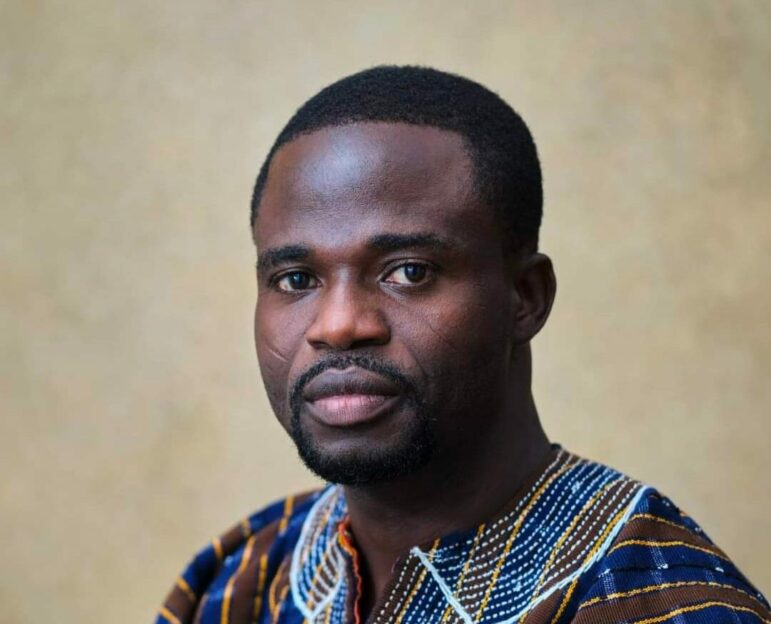
Getting the Story Out
6 Tips for Launching an Investigative Podcast
A Dataharvest session with podcast veterans from Poland and Portugal offered advice for journalists considering audio storytelling — from narrative tricks to business models.

A Dataharvest session with podcast veterans from Poland and Portugal offered advice for journalists considering audio storytelling — from narrative tricks to business models.

Insiders who successfully sound the alarm often do so with help — by partnering with allies who can amplify their message and help shield them from retaliation.

Feras Dalatey describes the surreal experience of reporting in his home country days after the fall of the Assad regime — and the challenges ahead for Syria’s investigative journalists.

For one night, the French nonprofit media site brought its staff and projects to a Paris theater to share its investigations into journalists who have been killed or silenced.

Investigative journalist and filmmaker Anu Adelakun discusses her investigation into the forces behind water scarcity and pollution in Africa’s most populous democracy.

Fariba Nawa, host of the On Spec podcast, discusses how she and her team have used donations and collaborations to build their project.
In this chapter, we discuss project evaluation and post-project analysis, where project managers assess the success of the investigation, learn from challenges, and apply those lessons going forward.
Chapter One of GIJN’s seven-chapter guide focusing on the non-journalistic aspects of project management in collaborative or cross-border journalism.
In this chapter, we cover how smart risk management can prevent unpleasant and even life-threatening situations when collaborating on an investigation, not only for sources and the team, even the publisher.
In this chapter, we discuss how tools for communication and cooperation are indispensable for collaborative journalism and cover some commonly used tools in investigative projects.
In this chapter, we cover how to administer a project budget and manage the money to cover travel, accommodation, tools and technology, legal support, payment of freelancers, and any other expenses.
The comprehensive guide offers detailed advice on managing the non-investigative aspects of collaborative projects.
In this chapter, we discuss how a project manager can monitor, guide, handle team dynamics, and ensure the group is best positioned to focus on its primary mission: collaborating on an investigation.
In this chapter, we discuss how the project manager helps the investigative team focus on the goals and scope of the project, set the direction, and define the boundaries of the reporting.

Two members of the OCCRP — North Macedonia’s Investigative Reporting Lab and Latvia’s Re:Baltica — have set up mobile reporting outposts.

Investigative podcasts from the region have successfully managed to mix traditional reporting with one of the continent’s oldest genres: narrative journalism.

Belarusian journalist Alina Yanchur shared the investigative methods adopted by those who have to work without access to state-published information.

A proposed “foreign agents” bill in Georgia is viewed by many journalists in the country as part of a coordinated campaign to suppress investigative and independent media.

The goal of Forbidden Stories is to send a strong signal to those who oppose press freedom and want to act with impunity that killing a journalist won’t kill the story.

Anti-corruption campaigner Alexey Navalny proved that anyone, after investigative training and practice, can expose rights abuse at the highest levels of government.

The global boom in audio streaming offers an opportunity for investigative journalists to reach wider audiences by developing multilingual translations of their podcasts.
Podcast listening in Brazil and Indonesia, two of the world’s top markets, has followed a global surge in listeners turning to the intimacy of podcasting and streaming audio, when and where they want. Come meet three journalists and producers who have both led the way in their countries, and collaborated in true GIJN fashion. Join […]

The award-winning Ghanaian journalist Manasseh Azure Awuni says there are a series of challenges that investigative reporters in Africa must confront during the course of their work. Read about the difficulty of getting accurate data, the challenges of impunity, funding issues, and press freedom challenges in this excerpt from his new book.
How to hire staff and plan out your shoots to tips for better photography and helpful case studies.
In a GIJC21 session on investigative podcasts, journalists and producers who have created award-winning podcasts shared ideas on how to leverage this audio storytelling technique to better connect with the audience and tell impactful stories.
This guide was produced thanks to support from the Google News Initiative. It was researched and written by Talya Cooper, a researcher based in New York who has worked as the archivist of the Edward Snowden archive at The Intercept and as archive manager at StoryCorps. She is the co-author, with Alison Macrina, of “Anonymity,” a […]
More than ever, investigative journalists need to understand electronic data to do their jobs. To find, extract, analyze and tell stories, increasingly they need to deal with spreadsheets, databases, and visualizations. Nils Mulvad (https://x.com/nmulvad) is an Investigative journalist based in Denmark, who has worked with data journalism for more than 20 years. Visit GIJN’s resource […]
COVID-19 Update: Reporting during the pandemic poses some new risks. Here are some relevant resources. Marc Settle, a BBC Academy smartphone trainer, prepared this article: Coronavirus’ impact on mobile journalism Nico Piro, mobile journalism trainer and special correspondent at Italy’s RAI, shared lessons here: Lessons from Italy: best practices for field reporting during the coronavirus […]